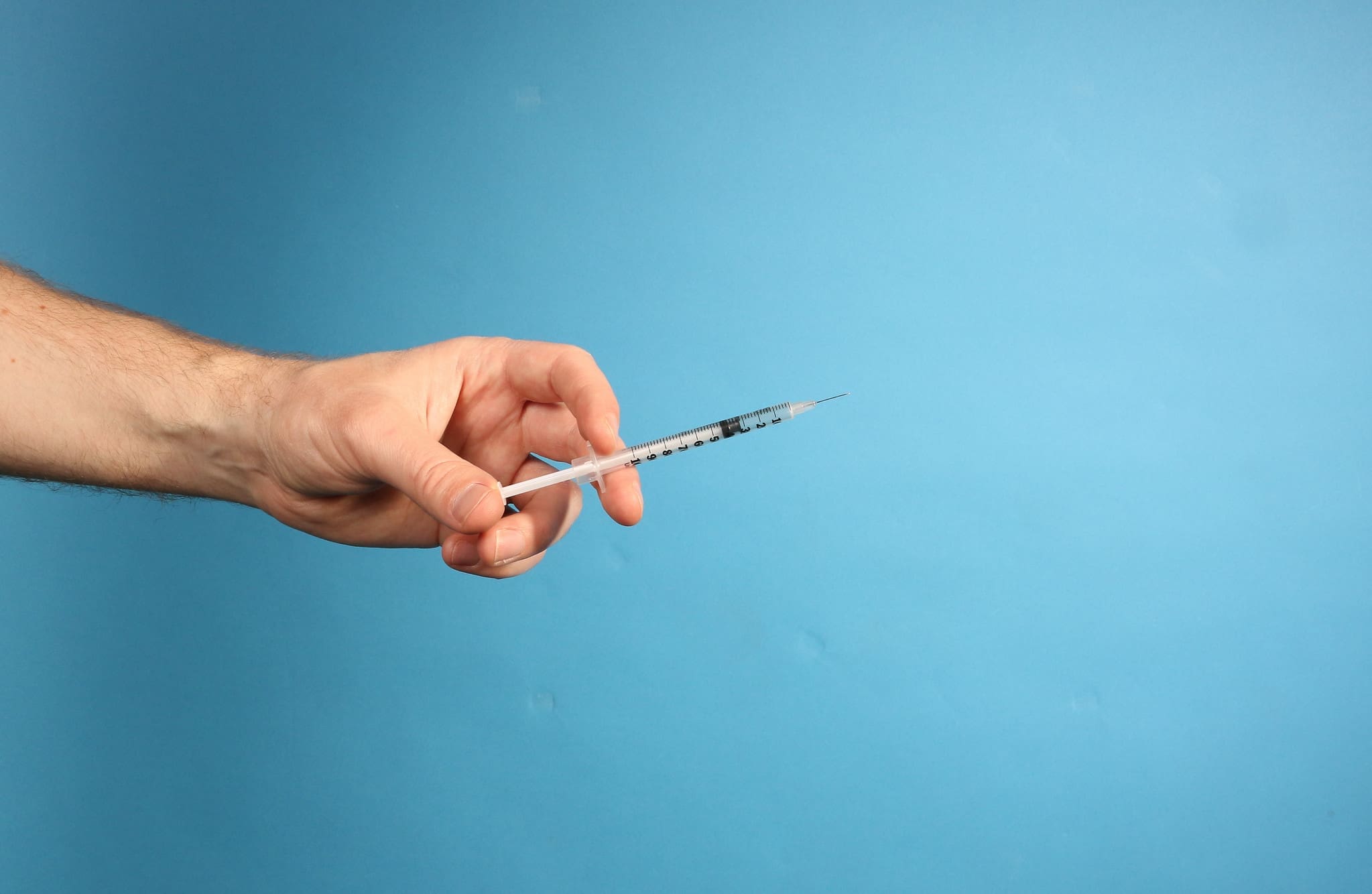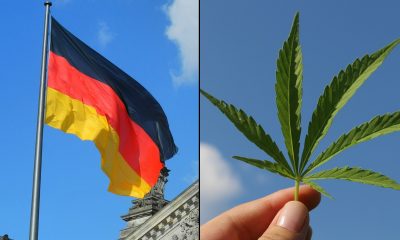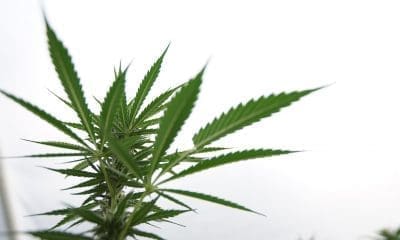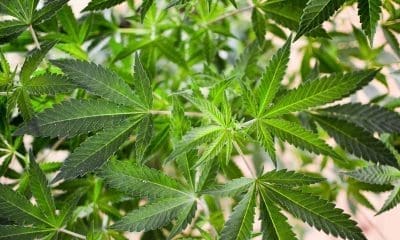Politics
Biden’s Harm Reduction Stance Could Be Put To Test In Supreme Court Case On Safe Consumption Sites

The Biden administration’s stance on harm reduction programs to reduce drug overdose deaths may soon be put to the test before the nation’s highest court.
A nonprofit that was set to launch a safe consumption site where people could use illicit drugs in a medically supervised environment—until the Trump administration successfully blocked those plans in federal court—filed a petition this week asking the U.S. Supreme Court to take up the case.
If the court agrees to hear the dispute, all eyes will be on the Biden Justice Department and whether it will continue the federal government’s opposition to allowing supervised injection facilities. It would be a precedent-setting case that could steer policy for years to come, meaning the Philadelphia-based Safehouse is taking a significant risk by pursuing the appeal before the majority of conservative justices.
While President Joe Biden hasn’t weighed in directly on safe consumption sites, there’s been a theme within his administration of embracing the general concept of harm reduction for drugs. The White House Office of National Drug Control Policy (ONDCP), for example, said that “promoting harm-reduction efforts” is a first-year priority. In an overview of its objectives, the office said it intends to expand “access to evidence-based treatment,” enhance “evidence-based harm reduction efforts” and promote “access to recovery support services.”
Also, the president signed a proclamation on Friday designating next week to be Overdose Awareness Week. It says that “we recommit to taking bold actions to prevent overdoses and related deaths, and enhance our support for individuals with substance use disorders” and touts federal funding for “prevention, harm reduction, treatment and recovery services, as well as strategies to reduce the supply of illicit drugs.”
All of these goals and initiatives theoretically align with those of Safehouse, which wants to give people with substance use disorders a facility where medical professionals can intervene in the event of an overdose and provide people with the resources to seek recovery.
The organization won a battle in a federal district court in 2019 to proceed with the facilities. But in January, the U.S. Court of Appeals for the Third Circuit overturned the decision, ruling that permitting such facilities would violate a 1980s-era federal statute that bars organizations from running operations “for the purpose of unlawfully… using controlled substances.” That law was passed while Biden served in the Senate and helped push punitive drug policies that have had lasting consequences.
So the question remains: If the Supreme Court elects to take the case, will the Biden Justice Department accept that lower court interpretation or support what advocates consider a critical harm reduction approach to the overdose epidemic?
And while this case focuses on safe consumption sites, the administration’s response could shed light on how it will handle other emerging drug policy issues. For example, it remains to be seen whether the Department of Justice might intervene in the licensing of health professionals to administer the Schedule I drug psilocybin in Oregon, which legalized the therapeutic use of the psychedelic fungi through the ballot last year. How Biden will ultimately navigate the state-federal disconnect on marijuana policy is another relevant question.
In its petition in the current safe injection site case, Safehouse argues that the court should “grant review to determine whether” federal statute really does prohibit “non-commercial, non-profit social service agencies…from establishing an overdose-prevention site that includes medically supervised consumption.”
“This question is a matter of life or death for thousands of Philadelphians and many thousands more throughout the country,” it said. “Tragically, while respondents have been pursuing this declaratory judgment against Safehouse, more than 3,200 people died in Philadelphia of drug overdoses—many of which could have been prevented if medical care had been immediately available through supervised consumption services.”
Safehouse also pointed out that Xavier Bacerra, the Biden administration’s secretary of health and human services, was among eight top state law enforcement officials who filed an amicus brief in support of the organization’s safe injection site plan when he served as California’s attorney general.
The organization put the gravity of the case in no uncertain terms, painting a picture of how its proposed facility can save lives.
“When breathing stops, even a brief delay while waiting for medical help to arrive may result in an otherwise preventable overdose death or irreversible injury,” the petition says. “As a result, every second counts when responding to an opioid overdose; as more time elapses, the greater the risk of serious injury and death. Ensuring proximity to medical care and opioid reversal agents like the drug Naloxone at the time of consumption is therefore a critical component of efforts to prevent fatal opioid overdose.”
“Intervention by this Court is warranted to make clear that the federal law does not criminalize this essential public health and medical intervention designed to save lives from preventable overdose death,” it continues.
The organization also cited quotes from then-Sen. Biden clarifying that the intent of the statute that the appeals court used to bar safe injection sites is not to “punish a promotor for the behavior of their patrons.” Rather, it’s meant to “help in the prosecution of rogue promoters who not only know that there is drug use at their event but also hold the event for the purpose of illegal drug use or distribution.”
Safehouse argued that the appeals court’s interpretation of the law “eviscerates the intended boundaries of the statute and would criminalize the operation of legitimate businesses, charities, families, and good Samaritans that serve and reside with those suffering from addiction.”
“States, cities, public health entities like Safehouse, and caring good Samaritans are seeking to take action to stop the preventable loss of life from the opioid crisis that relentlessly continues. Public health and medical experts, including those who founded and guide Safehouse, predict that supervised consumption services can help save lives. Meanwhile, although Congress evinced no intent to regulate this public health intervention, the court of appeals’ decision bars Safehouse and others from proceeding. This Court should not wait; it should grant the petition and correct the court of appeals’ fundamental misinterpretation of federal criminal law.”
If the Supreme Court were to take up the case and rule in favor of Safehouse, it could embolden advocates and lawmakers across the country to pursue the harm reduction policy.
The governor of Rhode Island signed a bill last month to establish a safe consumption site pilot program where people could test and use currently illicit drugs in a medically supervised environment. It became the first state in the country to legalize the harm reduction centers. It’s not clear whether the Department of Justice will seek to intervene to prevent the opening of such facilities in that state.
Massachusetts lawmakers advanced similar legislation last year, but it was not ultimately enacted.
A similar harm reduction bill in California, sponsored by Sen. Scott Wiener (D), was approved in the state Senate in April, but further action has been delayed until the beginning of 2022.
At the same time that Safehouse is turning to the Supreme Court, it also announced on Thursday that it will be returning the the federal district court that gave it an initial 2019 victory in support of establishing a safe injection facility before it was overturned in the appeals court.
The organization is making the unique argument that the federal government’s decision to block it from providing the service violates religious freedom by subjecting participants “to criminal penalties for exercising their sincerely held religious beliefs that they have an obligation to do everything possible to preserve life and to provide shelter and care to the vulnerable, including those suffering from addiction.”
In 2018, a congressional subcommittee approved legislation to specifically prohibit Washington D.C. from using local tax dollars to help open safe consumption facilities. But that provision was not enacted and has not been reintroduced since.
A 2020 study found that people “who reported using supervised injection facilities on an at least weekly basis had a reduced risk of dying compared to those who reported less than weekly or no use of this health service.”
Kratom Activists Send Tens Of Thousands Of Comments Telling FDA To Oppose Possible International Ban
Photo courtesy of Jernej Furman.
















